
Top 10 Mobility as a Service (MaaS) startups in India that are revolutionizing urban transportation. These innovative companies are reshaping the way people commute by offering seamless, integrated, and eco-friendly solutions. From app-based ride-sharing and micro-mobility platforms to advanced route planning and smart public transport services, these startups are leveraging cutting-edge technology to create efficient and sustainable mobility ecosystems. India’s mobility landscape is rapidly transforming with innovative startups leading the way in providing seamless, integrated transportation solutions. Here are ten standout MaaS startups in India making significant strides in this space.
Table of Contents
1. Bounce
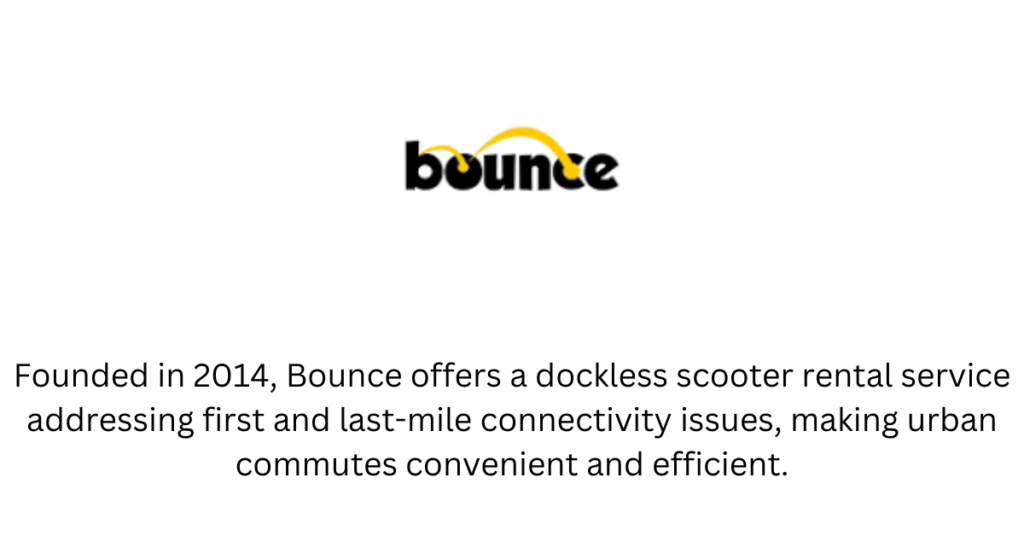
Bounce, founded in 2014 and headquartered in Bengaluru, is a leading MaaS startup offering shared mobility solutions. Bounce provides a dockless scooter rental service, allowing users to pick up and drop off scooters at any location. The service aims to solve the first and last-mile connectivity issues in urban areas, making daily commutes more convenient.
| ASPECT | DETAILS |
|---|---|
| Founded | 2014 |
| Headquarters | Bengaluru |
| Services | Scooter rentals |
| Key Features | Dockless system, first and last-mile connectivity |
| Website | bounceshare.com |
Bounce – Top 10 Mobility as a Service (MaaS) Startups in India
Also read: Top 10 E-commerce Startups in india
2. Rapido
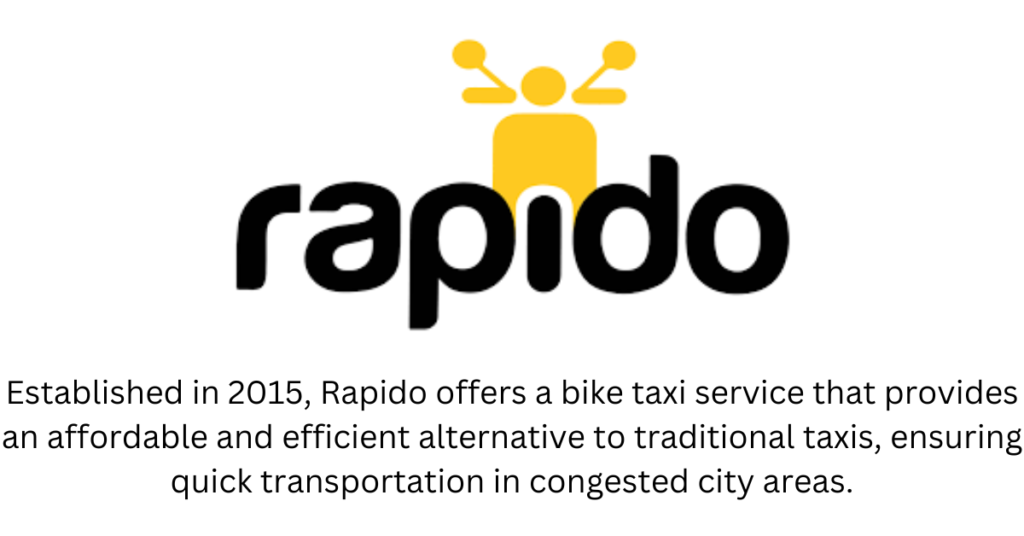
Rapido, established in 2015 and based in Bengaluru, is a bike taxi service that provides an affordable and efficient alternative to traditional taxis. Users can book a bike ride through the Rapido app for quick and easy transportation, especially useful in congested city areas. Rapido’s extensive network of “captains” ensures timely and reliable service.
| ASPECT | DETAILS |
|---|---|
| Founded | 2015 |
| Headquarters | Bengaluru |
| Services | Bike taxi |
| Key Features | Affordable, quick transportation |
| Website | rapido.bike |
Rapido – Top 10 Mobility as a Service (MaaS) Startups in India
Also read: Top 10 AI Startups in India
3. Yulu
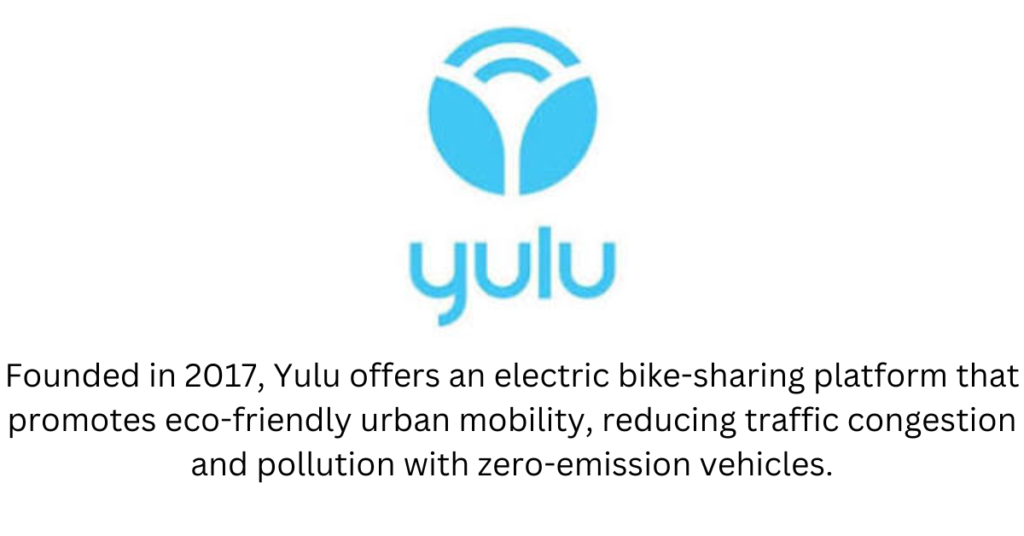
Yulu, founded in 2017 and headquartered in Bengaluru, is an electric bike-sharing platform focusing on eco-friendly urban mobility. Yulu’s electric bikes, known as Yulu Miracle, can be rented via a mobile app for short commutes, reducing traffic congestion and pollution. The service promotes sustainable transportation with zero emissions.
| ASPECT | DETAILS |
|---|---|
| Founded | 2017 |
| Headquarters | Bengaluru |
| Services | Electric bike-sharing |
| Key Features | Eco-friendly, zero emissions |
| Website | yulu.bike |
Yulu – Top 10 Mobility as a Service (MaaS) Startups in India
Also read: Top 10 Blockchain Startups in india
4. Shuttl
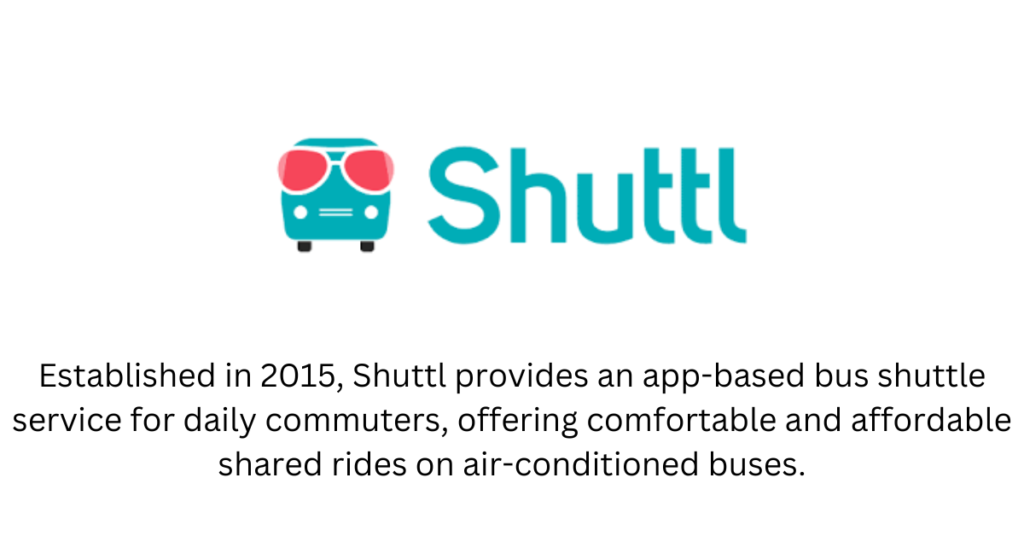
Shuttl, established in 2015 and based in Gurgaon, provides an app-based bus shuttle service aimed at daily commuters. Shuttl offers comfortable and affordable shared rides on air-conditioned buses, helping reduce the number of private vehicles on the road. The service is designed to offer a stress-free commuting experience with features like reserved seating and real-time tracking.
| ASPECT | DETAILS |
|---|---|
| Founded | 2015 |
| Headquarters | Gurgaon |
| Services | Bus shuttle service |
| Key Features | Comfortable, affordable shared rides |
| Website | shuttl.com |
Shuttl – Top 10 Mobility as a Service (MaaS) Startups in India
Also read: Top 10 IoT Startups in india
5. Vogo
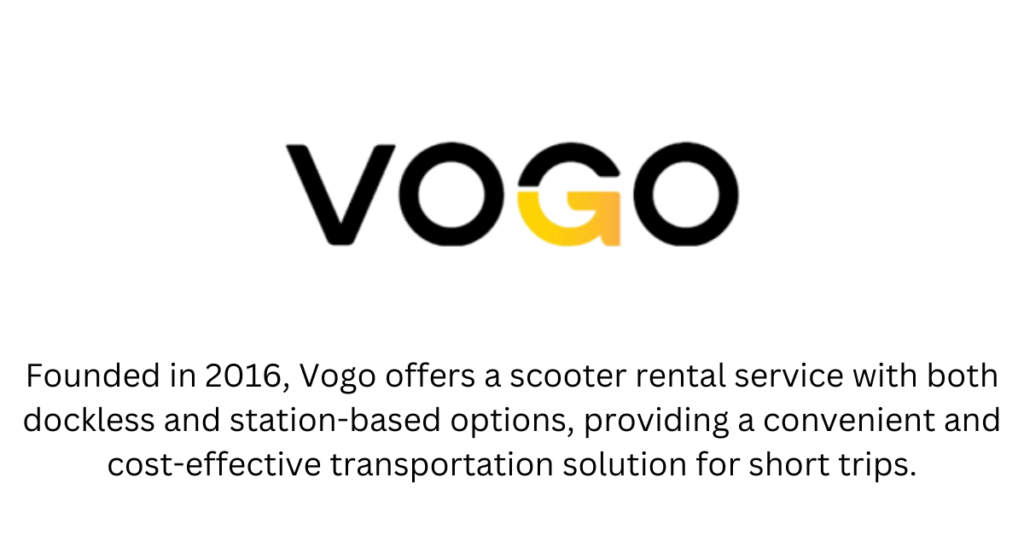
Vogo, founded in 2016 and headquartered in Bengaluru, is a scooter rental service offering both dockless and station-based options. Users can rent scooters through the Vogo app for short trips, enhancing urban mobility and reducing dependence on personal vehicles. Vogo aims to provide a convenient, cost-effective transportation solution.
| ASPECT | DETAILS |
|---|---|
| Founded | 2016 |
| Headquarters | Bengaluru |
| Services | Scooter rentals |
| Key Features | Dockless and station-based options |
| Website | vogo.in |
Vogo – Top 10 Mobility as a Service (MaaS) Startups in India
Also read: Top 10 Robotics Startups in india
6. Quick Ride
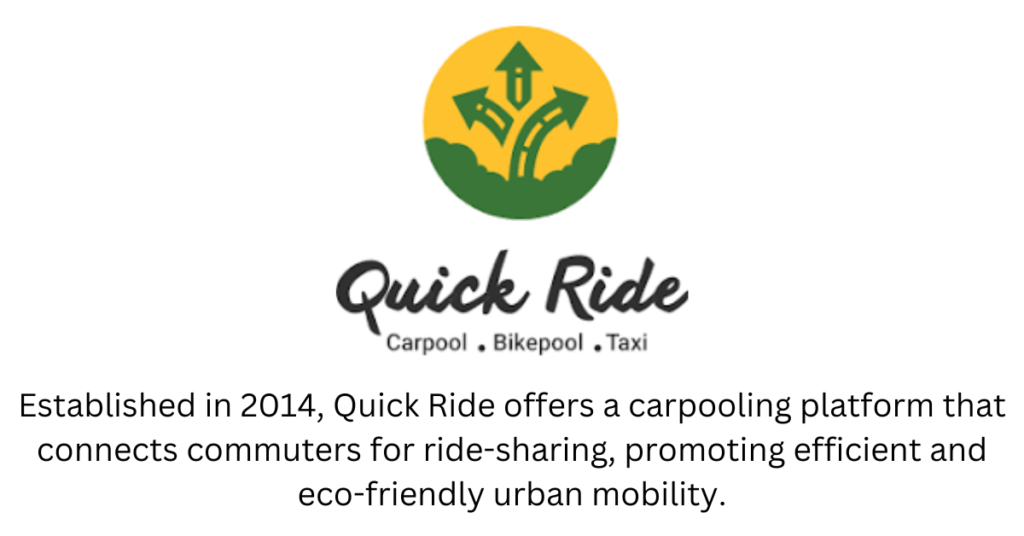
Quick Ride, established in 2014 and based in Bengaluru, is a carpooling platform connecting commuters traveling in the same direction. The app facilitates ride-sharing among users, reducing traffic congestion and commuting costs. Quick Ride promotes a community-driven approach to urban mobility, making daily commutes more efficient and eco-friendly.
| ASPECT | DETAILS |
|---|---|
| Founded | 2014 |
| Headquarters | Bengaluru |
| Services | Carpooling |
| Key Features | Ride-sharing, cost-effective commuting |
| Website | quickride.in |
Quick Ride – Top 10 Mobility as a Service (MaaS) Startups in India
Also read: Top 10 Virtual Reality Startups in india
7. Drivezy
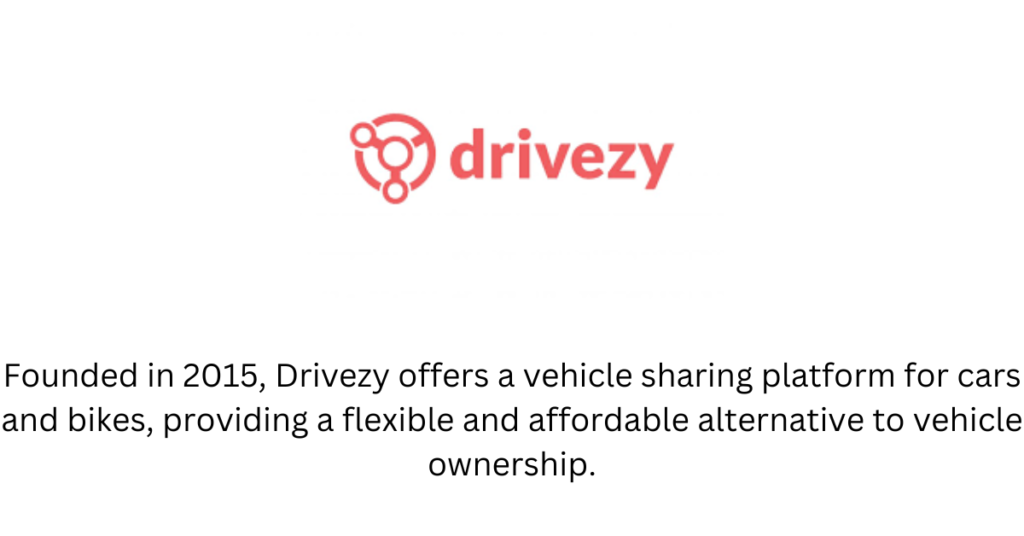
Drivezy, founded in 2015 and headquartered in Bengaluru, is a vehicle sharing platform offering cars and bikes on rent. Users can book vehicles through the Drivezy app for self-drive purposes, providing a flexible and affordable alternative to owning a vehicle. Drivezy aims to make transportation accessible and convenient for all.
| ASPECT | DETAILS |
|---|---|
| Founded | 2015 |
| Headquarters | Bengaluru |
| Services | Vehicle sharing (cars and bikes) |
| Key Features | Flexible self-drive rentals |
| Website | drivezy.com |
Drivezy – Top 10 Mobility as a Service (MaaS) Startups in India
Also read: Top 10 Augmented Reality Startups in india
8. Ola
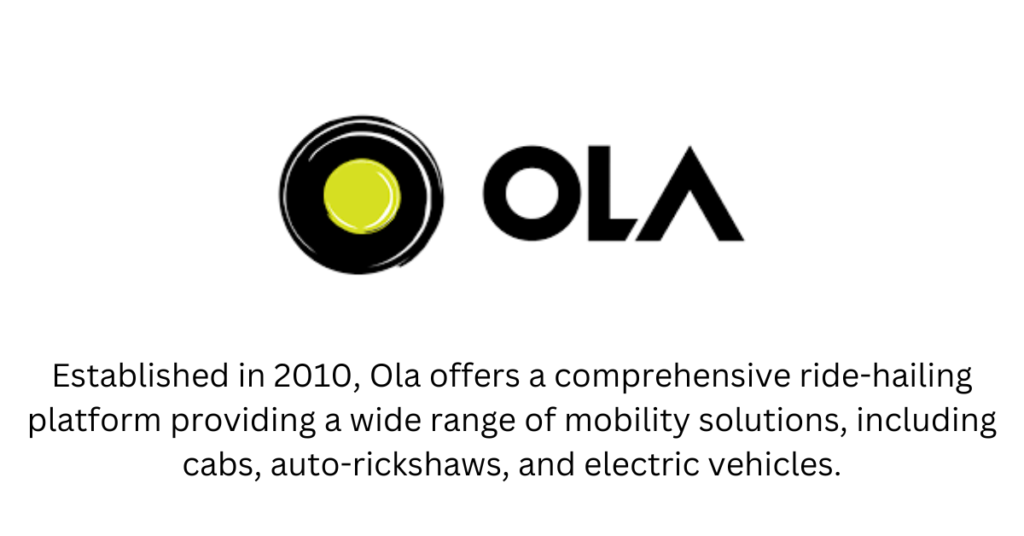
Ola, established in 2010 and based in Bengaluru, is one of India’s largest ride-hailing platforms. Ola offers a wide range of mobility solutions including cabs, auto-rickshaws, and electric vehicles. With its comprehensive app-based service, Ola aims to provide safe, reliable, and affordable transportation to millions of users across the country.
| ASPECT | DETAILS |
|---|---|
| Founded | 2010 |
| Headquarters | Bengaluru |
| Services | Ride-hailing |
| Key Features | Wide range of mobility solutions |
| Website | ola.cab |
Ola – Top 10 Mobility as a Service (MaaS) Startups in India
Also read: Top 10 Health and Wellness Startups in india
9. Tummoc
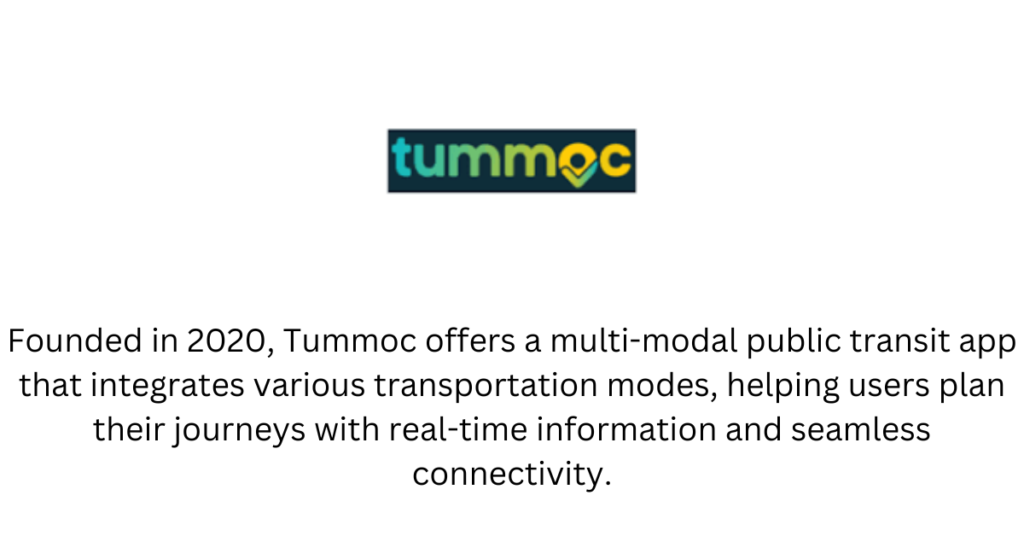
Tummoc, founded in 2020 and headquartered in Bengaluru, is a multi-modal public transit app that integrates various modes of transportation into a single platform. The app helps users plan their journeys using public transport, ride-sharing, and other mobility options. Tummoc aims to simplify urban commuting by offering real-time information and seamless connectivity.
| ASPECT | DETAILS |
|---|---|
| Founded | 2020 |
| Headquarters | Bengaluru |
| Services | Multi-modal public transit app |
| Key Features | Integrated transportation planning |
| Website | tummoc.com |
Tummoc – Top 10 Mobility as a Service (MaaS) Startups in India
Also read: Top 10 Mental Health Startups in india
10. IntrCity SmartBus
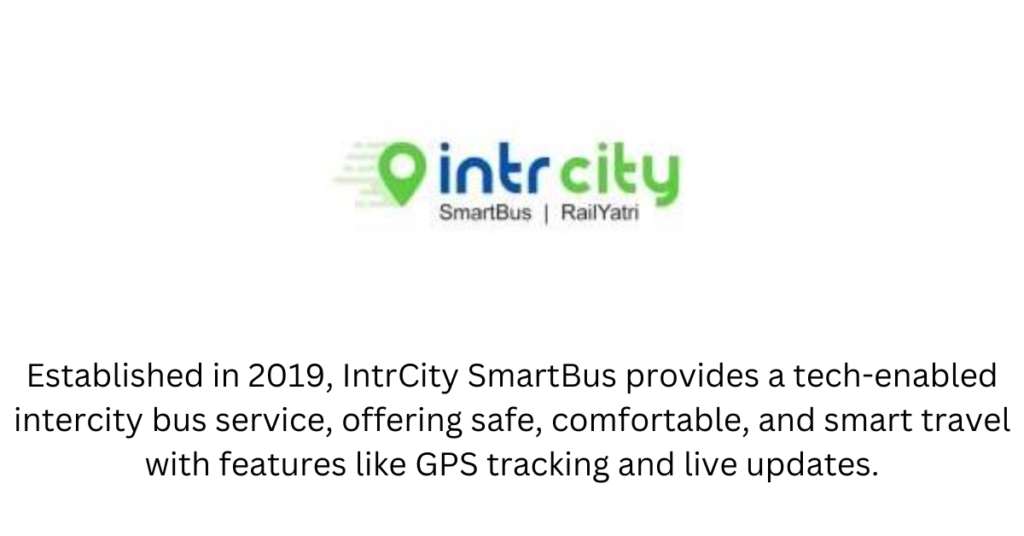
IntrCity SmartBus, established in 2019 and based in Noida, provides a tech-enabled intercity bus service offering safe and comfortable travel. The platform allows users to book bus tickets through a mobile app and offers features like GPS tracking, live updates, and on-board amenities. IntrCity SmartBus aims to transform intercity travel with its smart and reliable bus services.
| ASPECT | DETAILS |
|---|---|
| Founded | 2019 |
| Headquarters | Noida |
| Services | Intercity bus service |
| Key Features | GPS tracking, live updates, on-board amenities |
| Website | intrcity.com |
IntrCity SmartBus – Top 10 Mobility as a Service (MaaS) Startups in India
Also read: Top 10 SaaS Startups for Software in india
FAQs regarding the Top 10 Mobility as a Service (MaaS) Startups in India
1. What is Mobility as a Service (MaaS)?
MaaS is a digital platform that integrates various forms of transportation services into a single accessible on-demand service. It aims to provide users with easy, seamless, and efficient transportation options through a unified application.
2. Which are the top MaaS startups in India?
Some of the leading MaaS startups in India include:
- Ola
- Bounce
- Rapido
- Vogo
- Shuttl
- Yulu
- Quick Ride
- Chalo
- Ridlr
- Tummoc
3. What services do these MaaS startups provide?
These startups offer a range of services including ride-hailing, bike-sharing, car rentals, shuttle services, public transit integration, and micro-mobility options such as e-scooters and bicycles.
4. How do these MaaS startups benefit users?
MaaS startups benefit users by providing multiple transportation options in a single app, ensuring convenience, cost-effectiveness, and time efficiency. They also offer features like real-time tracking, easy booking, and payment integration.
5. How do MaaS startups contribute to reducing traffic congestion?
By promoting shared mobility solutions and integrating multiple transportation modes, MaaS startups help reduce the number of private vehicles on the road, thus alleviating traffic congestion and reducing urban pollution.
6. Are these MaaS services available in all cities across India?
The availability of MaaS services varies by startup and city. Major cities like Bangalore, Mumbai, Delhi, Chennai, Hyderabad, and Pune typically have better coverage and a wider range of services.
7. What technology do MaaS startups use to operate their services?
MaaS startups use advanced technologies such as GPS, mobile applications, data analytics, machine learning, and cloud computing to offer real-time tracking, route optimization, and personalized transportation solutions.
8. How do MaaS startups ensure the safety and security of their users?
MaaS startups implement various safety measures, including driver background checks, real-time tracking, SOS features, insurance coverage, and adherence to local regulations to ensure user safety and security.
9. What are the payment options available for MaaS services?
Users can typically pay for MaaS services through multiple options such as credit/debit cards, mobile wallets, UPI, and sometimes even cash. Subscription models and pay-as-you-go options are also available.
10. How are MaaS startups promoting sustainable transportation?
Many MaaS startups focus on sustainable transportation by offering electric vehicles, promoting bike-sharing, and integrating public transit options. These initiatives help reduce carbon emissions and promote greener urban mobility solutions.
Conclusion
India’s MaaS startups are transforming urban mobility with innovative solutions that address the challenges of traffic congestion, pollution, and commuting efficiency. By leveraging technology and focusing on user convenience, these startups are paving the way for a more sustainable and integrated transportation ecosystem. With continued support and innovation, they are set to revolutionize the way people move in urban areas across India.
Also read:
- Top 10 E-commerce Startups in india
- Top 10 AI Startups in India
- Top 10 Blockchain Startups in india
- Top 10 IoT Startups in india
- Top 10 Robotics Startups in india
- Top 10 SaaS Startups for Software in india
- Top 10 Virtual Reality Startups in india
- Top 10 Augmented Reality Startups in india
- Top 10 Health and Wellness Startups in india
- Top 10 Mental Health Startups in india








